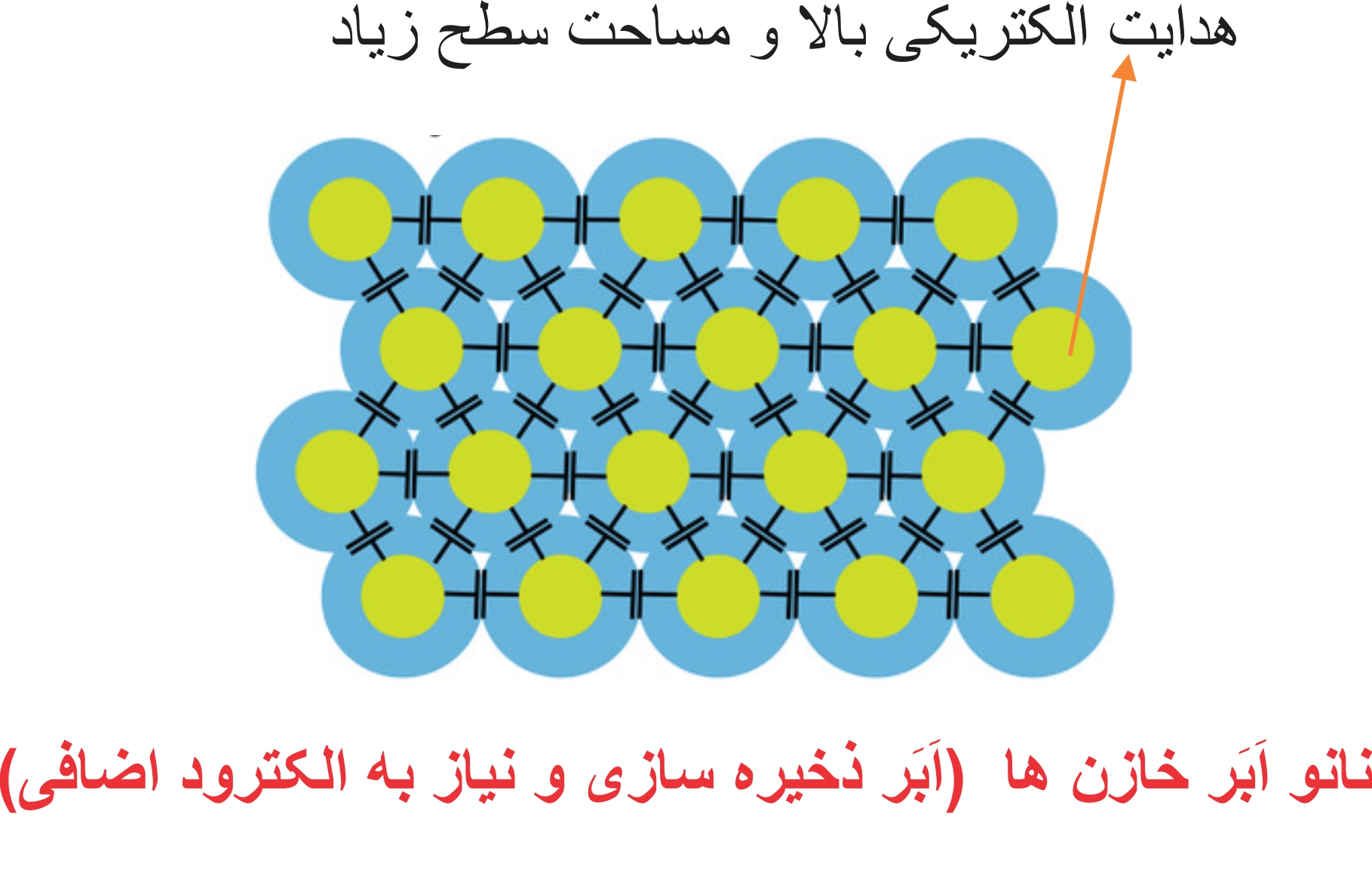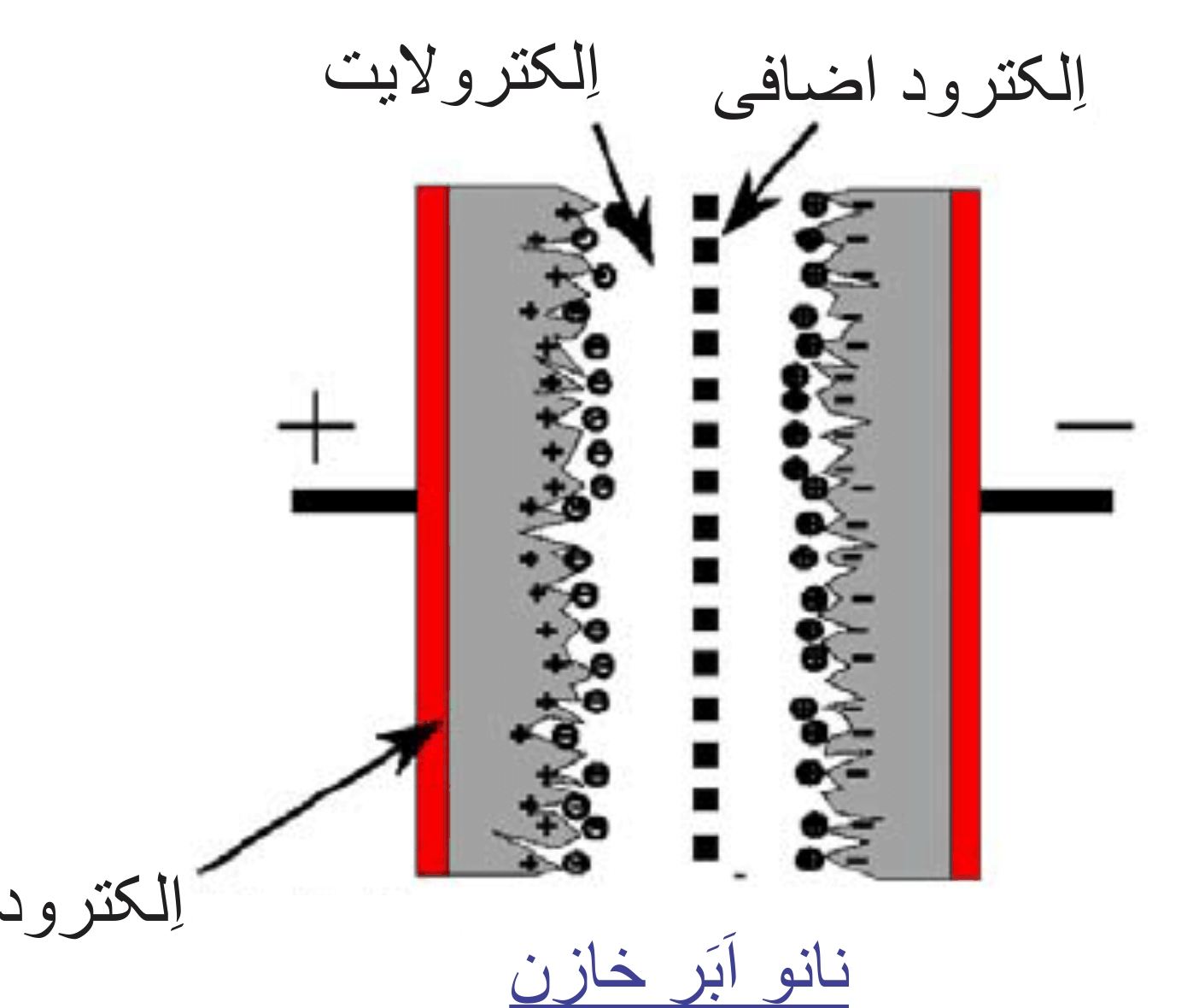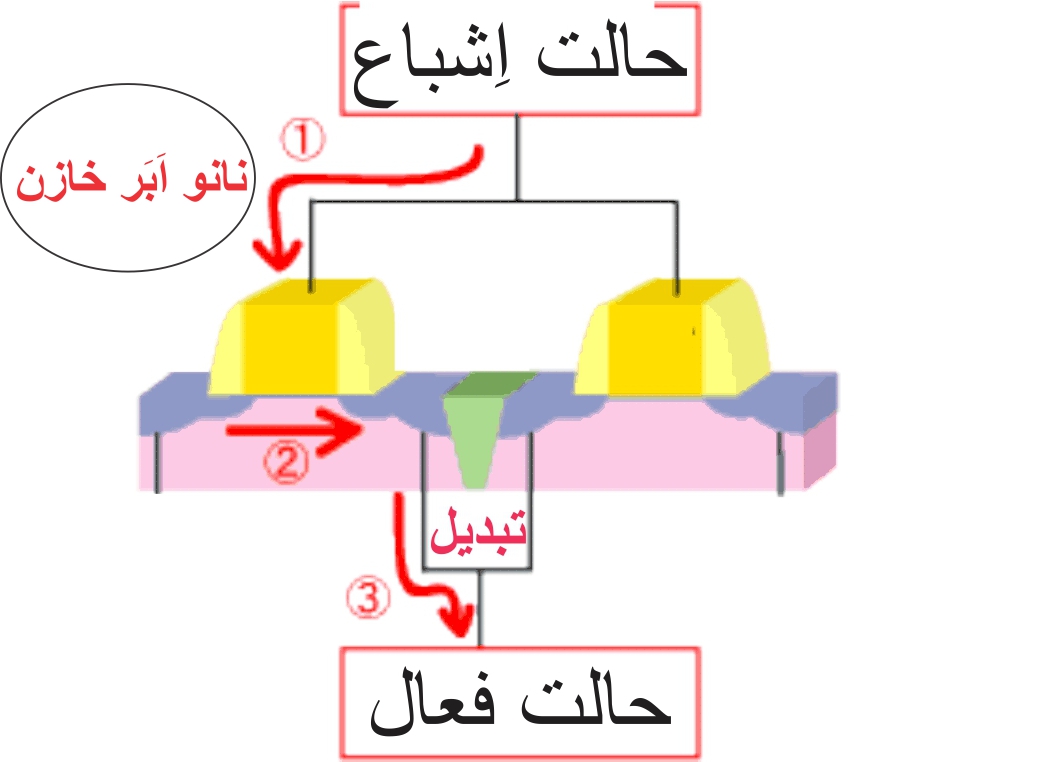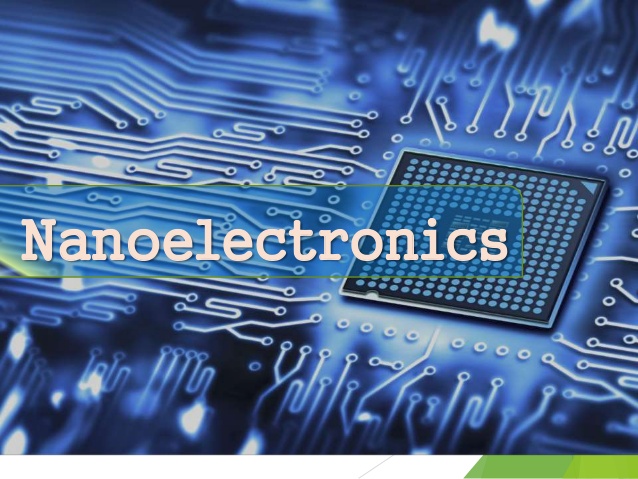Nano cloud capacitor section
Nano super capacitors (super storage and the need for additional electrodes)
Researcher and author: Dr. ( Afshin Rashid)
Note: Nano supercapacitors need another electrode for storage. For this, a thin plastic layer is placed on the surface of the sheath and covered with another metal . A special gel is also used to connect these layers together. Due to the existence of the insulating nano layer, in supercapacitors, the internal wire can act as a current transmitter and the external electrode provides storage independently .
In this case, a copper nano-supercapacitor is produced, which has the possibility of both current passing and storage. Such nano supercapacitors can also be produced with other materials. The energy storage and electrical conductivity of nanotube cables can be as high as the conductivity of metal wires.
Among the various compounds used in nano-supercapacitors, graphene-based materials, especially three-dimensional graphene, facilitate the way for electrolyte penetration and increase energy storage due to its unique three-dimensional structure . Also, high electrical conductivity and large surface area are among other advantages of this type of three-dimensional porous structures, which have found a potential for application in nano-supercapacitors. Considering that the electric charge is stored in the nano supercapacitor, it can be used to create a uniform and stable electric field. One of the ways to optimize the properties of energy storage systems is to develop new materials for use as electrode materials in nano supercapacitors.
Conclusion :
Nano supercapacitors need another electrode for storage. For this, a thin plastic layer is placed on the surface of the sheath and covered with another metal . A special gel is also used to connect these layers together. Due to the existence of the insulating nano layer, in supercapacitors, the internal wire can act as a current transmitter and the external electrode provides storage independently .
Researcher and author: Dr. ( Afshin Rashid)
Specialized doctorate in nano-microelectronics







